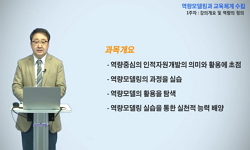When Liquified Natural Gas (LNG) is vaporized into NG for industrial and household usage, tremendous cold energy was transferred from LNG to seawater during phase-changing process. This heat exchanger loop is not only a waste of huge cold energy, but ...
http://chineseinput.net/에서 pinyin(병음)방식으로 중국어를 변환할 수 있습니다.
변환된 중국어를 복사하여 사용하시면 됩니다.
- 中文 을 입력하시려면 zhongwen을 입력하시고 space를누르시면됩니다.
- 北京 을 입력하시려면 beijing을 입력하시고 space를 누르시면 됩니다.

LNG 냉열을 이용한 냉장⋅냉동 창고 모사에 관한 연구 = A Study of Simulation on the Refrigerated Warehouse System Based on the Cold Energy of Lng Using the Pro-Ii Simulator
한글로보기https://www.riss.kr/link?id=A104301326
- 저자
- 발행기관
- 학술지명
- 권호사항
-
발행연도
2017
-
작성언어
Korean
-
주제어
LNG ; Cold energy ; Refrigeration ; Modeling ; Refrigeration warehouse ; Cold heat ; Simulation ; 액화천연가스 ; 냉열 ; 냉동기 ; 모델링 ; 냉동 창고 ; 냉열 ; 모사
-
등재정보
KCI등재
-
자료형태
학술저널
- 발행기관 URL
-
수록면
401-406(6쪽)
-
KCI 피인용횟수
4
- DOI식별코드
- 제공처
-
0
상세조회 -
0
다운로드
부가정보
다국어 초록 (Multilingual Abstract)
When Liquified Natural Gas (LNG) is vaporized into NG for industrial and household usage, tremendous cold energy was transferred from LNG to seawater during phase-changing process. This heat exchanger loop is not only a waste of huge cold energy, but will cause thermal pollution to the coastal fishery area also when cold water was re-injected into the sea. In this study, an innovation design has been performed to reclaim the cold energy for -35 to 62℃ refrigerated warehouse. Conventionally, this was done by installing mechanical refrigeration systems, necessitating tremendous electrical power to drive temperature. A closed loop LNG heat exchangers in series was designed to replace the mechanical or vapor-compression refrigeration cycle by process simulator. The process simulation software of PRO II with provision has been used to simulate this process for various conditions, what to effect on cold energy and used energy for re-liquefaction and evaporation process. In addition, through analysis the effect of the change of LNG supply pressure on sensible and latent heat, optimum operational conditions was suggested for LNG cold energy warehouse.
참고문헌 (Reference)
1 Promotion Project for Promotion of Global Warming Countermeasures, "Toward the Dissemination of Fuel Conversion Business to Southeast Asia by Export of LNG Subsea Transport Facilities Technology" Nomura Research Institute 2014
2 J. H. Cho, "The Design of Chemical Process for Energy Saving" AJIN Express 2007
3 J. W. Wu, "System Design and Analysis of Applying LNG Cold Energy to Refrigerated Warehouses" 15 : 44-47, 2010
4 J. Lian, "Research on High Efficient Utilization of LNG Cold Energy" 282-287, 2015
5 J. H. Cho, "PRO II with PROVISION Practice for Process Engineer" AJIN Express 2005
6 S. Z. Tian, "Design of Liquefied Natural Gas Properties Calculation Software" 43 : 254-261, 2014
7 K. H. Yang, "Design Analysis of a Refrigerated Warehouse using LNG Cold Energy" 4 (4): 14-23, 2003
8 Q. F. Liu, "Application and Research of LNG Cold Energy" 41 : 133-134, 2014
1 Promotion Project for Promotion of Global Warming Countermeasures, "Toward the Dissemination of Fuel Conversion Business to Southeast Asia by Export of LNG Subsea Transport Facilities Technology" Nomura Research Institute 2014
2 J. H. Cho, "The Design of Chemical Process for Energy Saving" AJIN Express 2007
3 J. W. Wu, "System Design and Analysis of Applying LNG Cold Energy to Refrigerated Warehouses" 15 : 44-47, 2010
4 J. Lian, "Research on High Efficient Utilization of LNG Cold Energy" 282-287, 2015
5 J. H. Cho, "PRO II with PROVISION Practice for Process Engineer" AJIN Express 2005
6 S. Z. Tian, "Design of Liquefied Natural Gas Properties Calculation Software" 43 : 254-261, 2014
7 K. H. Yang, "Design Analysis of a Refrigerated Warehouse using LNG Cold Energy" 4 (4): 14-23, 2003
8 Q. F. Liu, "Application and Research of LNG Cold Energy" 41 : 133-134, 2014
동일학술지(권/호) 다른 논문
-
케미컬루핑 연소시스템을 위한 산소전달입자의 상온-상압 고체순환특성
- 한국수소및신에너지학회
- 윤주영
- 2017
- KCI등재
-
- 한국수소및신에너지학회
- 정헌도
- 2017
- KCI등재
-
- 한국수소및신에너지학회
- 김슬기
- 2017
- KCI등재
-
고분자 전해질막 수전해 막전극접합체의 양이온 오염에 따른 성능 저하
- 한국수소및신에너지학회
- 정혜영
- 2017
- KCI등재
분석정보
인용정보 인용지수 설명보기
학술지 이력
| 연월일 | 이력구분 | 이력상세 | 등재구분 |
|---|---|---|---|
| 2027 | 평가예정 | 재인증평가 신청대상 (재인증) | |
| 2021-01-01 | 평가 | 등재학술지 유지 (재인증) |  |
| 2018-08-16 | 학술지명변경 | 외국어명 : 미등록 -> Transactions of the Korean Hydrogen and New Energy Society |  |
| 2018-01-01 | 평가 | 등재학술지 유지 (등재유지) |  |
| 2015-01-01 | 평가 | 등재학술지 유지 (등재유지) |  |
| 2011-01-01 | 평가 | 등재학술지 유지 (등재유지) |  |
| 2009-01-01 | 평가 | 등재학술지 유지 (등재유지) |  |
| 2006-01-01 | 평가 | 등재학술지 선정 (등재후보2차) |  |
| 2005-05-30 | 학술지등록 | 한글명 : 한국수소및신에너지학회논문집외국어명 : 미등록 |  |
| 2005-01-01 | 평가 | 등재후보 1차 PASS (등재후보1차) |  |
| 2003-07-01 | 평가 | 등재후보학술지 선정 (신규평가) |  |
학술지 인용정보
| 기준연도 | WOS-KCI 통합IF(2년) | KCIF(2년) | KCIF(3년) |
|---|---|---|---|
| 2016 | 0.25 | 0.25 | 0.22 |
| KCIF(4년) | KCIF(5년) | 중심성지수(3년) | 즉시성지수 |
| 0.25 | 0.23 | 0.371 | 0.17 |




 ScienceON
ScienceON DBpia
DBpia






